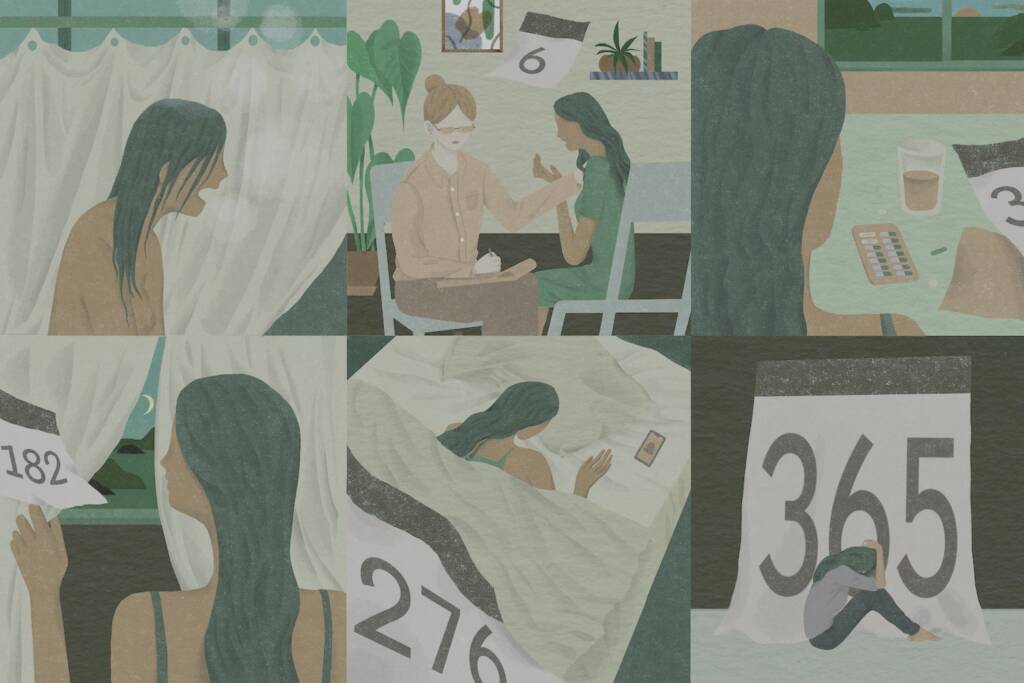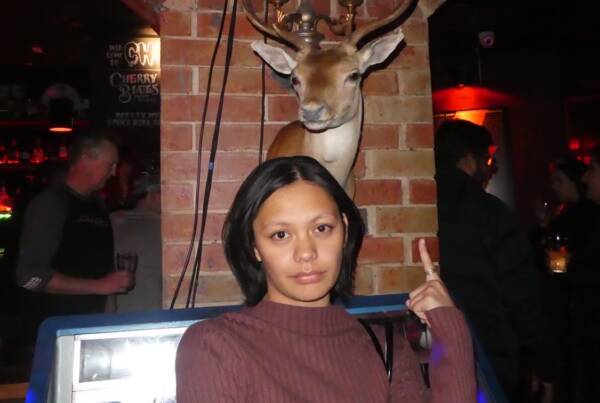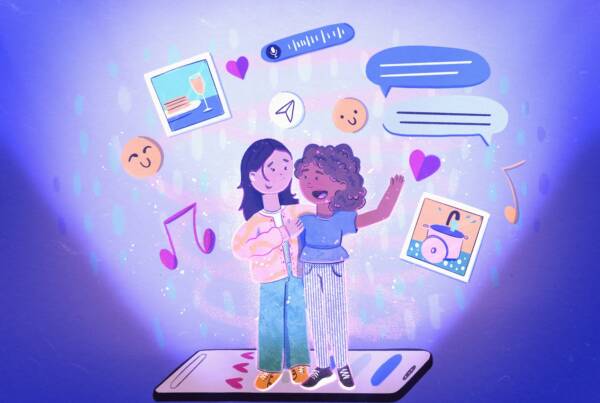Writing by Ella Cigognini // illustration by YanJun Chen
 I hadn’t even realised it had been a year until my snapchat memory reminded me. It felt like a stab to the gut, one which caused my stomach to topple out of the wound and onto my bedroom floor. The assault that had happened a year ago had since settled down to a light hum in my stomach, and I was ready for it to stay there forever, until I was reminded, and was left drowning in a wave of anxiety.
I hadn’t even realised it had been a year until my snapchat memory reminded me. It felt like a stab to the gut, one which caused my stomach to topple out of the wound and onto my bedroom floor. The assault that had happened a year ago had since settled down to a light hum in my stomach, and I was ready for it to stay there forever, until I was reminded, and was left drowning in a wave of anxiety.
It strained that wound open and pulled it apart until I cried. Until I climbed under my covers and turned my face into my pillow. It had been a year. A whole 365 days of my life had passed since that one few hours.
Unfortunately, this is really common. The visceral reaction to a traumatic event a year, or the following years on the same or surrounding date. One that causes your physical body to retaliate in response to memory, and for your mind to replay the events in your head.
It’s called the Anniversary Effect. A psychological phenomena that is very real, and very valid. The Awareness Centre, a London-based counselling and psychology support network describes this phenomena as an ‘annual echo of trauma’, A collection of feelings that can dim so slightly following the event, but can resurface just as quickly twelve months later. It can manifest in physical symptoms as well as mental. You might experience headaches, loss of appetite or exhaustion, which can then often lead to increased anxiety, confusion or depression. Each symptom, whether physical or mental, is completely normal and quite common among those with trauma.
For me, it was a tricky period to navigate. I experienced a sexual assault at the beginning of 2020. I knew right away that what happened was illegal, or at the very least wrong. It took me a few months to recognise how hurt I was, feeling like I hit rock bottom and finding myself in a depressive hole I’d never thought I’d climb out of. But then I did, and I began to heal and repair and see myself as I had before it happened. So many others like myself have done the same. And they often refer to themselves as ‘broken’ during this time. I did as well, but what I realised years later, was that that part of me was never ‘broken’, but instead hidden, and was waiting for my body and mind to discover itself again.
But then came that one day in January, a whole year after it had happened. The wound had completely been torn open again and I felt myself falling into the state I thought I’d never come back from. It was even worse when Snapchat reminded me of the memory with a video of myself that night. It was a sign to me that I wasn’t yet over what I had gone through, something that is common with people experiencing Post Traumatic Stress Disorder (PTSD).
The Awareness Centre says anniversary anxiety happens for a reason. Which frankly, really sucks. Especially when you feel like you’re finally starting to heal, but you get dragged right back into the same place and you wonder if it’s ever going to get better. However, this anxiety is sort of like a layer of protection, warding us off possible dangers around us when put in similar situations. This doesn’t mean you should stop drinking alcohol forever if you were taken advantage of while intoxicated, it’s just your body’s physical response to your surroundings, reminding you to always take care of yourself.
During this period you might feel despair, hopelessness, anxiety and like your pain is never going to end. Like you’re going to be haunted by this feeling, this person or this event forever. But you should never underestimate yourself or your strength. If you do find the date creeping up on you, or certain feelings begin to stir again, The Awareness Centre suggests a long list of ways to cope with this effect.
Some include:
- Planning ahead: remind yourself of these dates and how they might be tough for you
- Talk about it: Talk with a friend or family member, write notes in a journal, or find another creative way to express your feelings
- Remember it is temporary: Remember that these reactions can be strong, but you will come out of it feeling better
- Give yourself time: Loss affects everyone differently, there is no set amount of time where you ‘should be over it’.
Other suggestions can be found here.
While either yourself or someone you know can possibly relate to my story, it’s not the only valid experience that can cause this effect. The death of a friend or family member, the date of a miscarriage or birthday of someone who is no longer in your life are all things that can cause such a reaction. It’s so important to remember, that if your experience decides to creep back into your daily life when you think you’ve healed, it doesn’t mean you are still ‘broken’, it just means you’re acknowledging what happened to you, and that it’s only a small part of your entire self.
If you are in need of help or support, reach out to the services below.
1800RESPECT – 1800 737 732
Beyond Blue – 1300 224 636
Blue Knot – 1300 657 380






